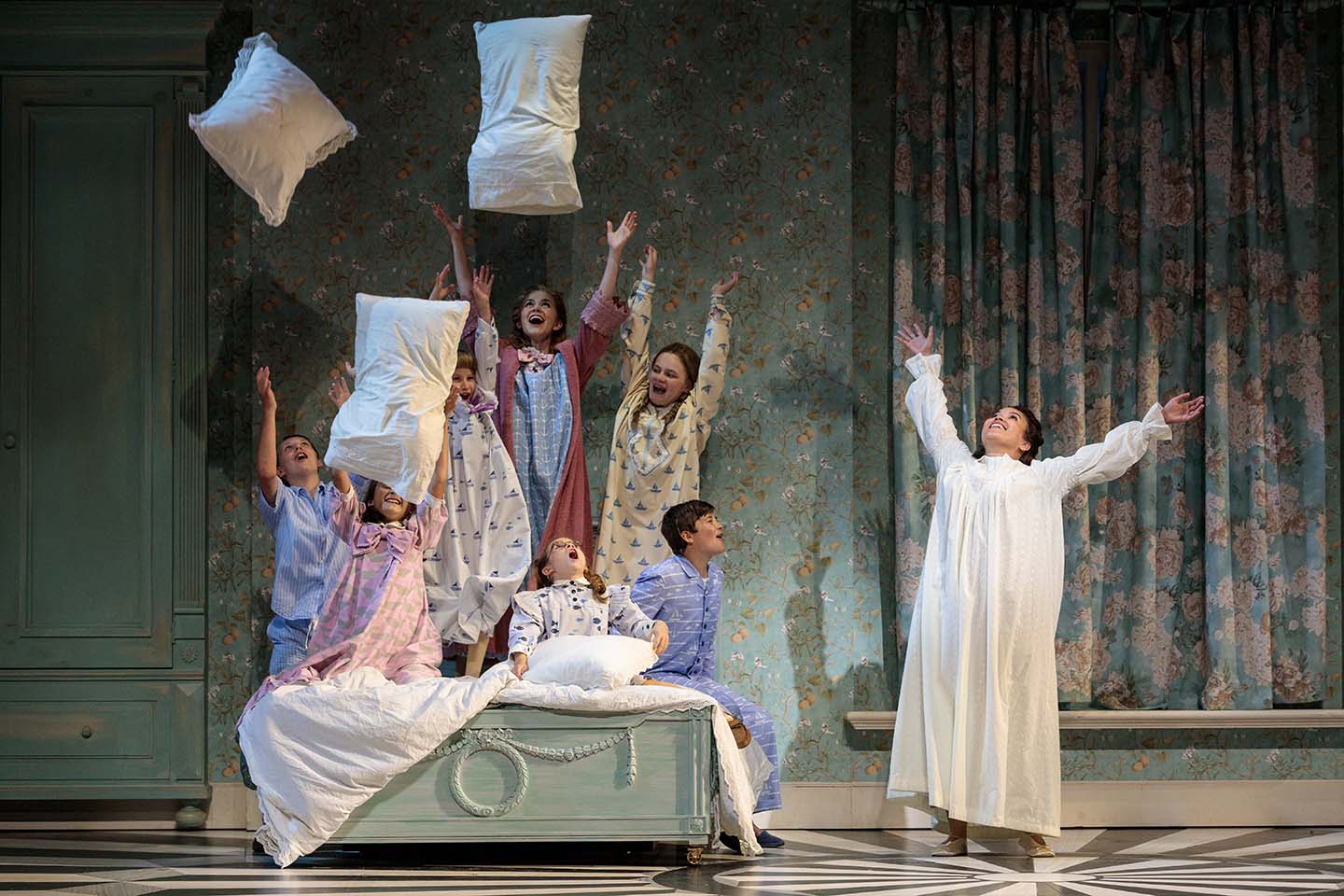by Beth Wamsley
The Sound of Music is a beloved story that has captivated audiences for decades. Many people are familiar with the classic 1965 film starring Julie Andrews and Christopher Plummer, but some are not as familiar with the original 1959 Broadway musical. While both the movie and the musical share the same source material, they have distinct differences that set them apart.
Songs New and Old
One of the most noticeable differences between the movie and the musical are the songs. While the movie added iconic songs not originally in the musical, it also omitted some!
“The Lonely Goatherd” and “My Favorite Things”
In the film version of The Sound of Music, the children and Maria perform “The Lonely Goatherd” in a puppet show for Uncle Max and Elsa Schraeder. Unlike the movie, (to the dismay of some) there is no elaborate puppet show in the musical. In fact, this lively song about solitary mountain men is what Maria sings to calm the children during the thunderstorm shortly after her arrival.

You may be asking, “If not sung during the thunderstorm, where is My Favorite Things?!” This beloved song is actually sung by Maria and Mother Abbess in the musical! When Maria expresses understandable anxiety about becoming governess to seven unwieldy children, Mother Abbess tries to lift Maria’s spirits by telling her to remember her favorite things.
“I Have Confidence” and “Something Good”
The Sound of Music movie introduced a few songs that were not originally in the musical. Richard Rodgers wrote “I Have Confidence” by himself, as Oscar Hammerstein passed away six months after the Broadway show's premiere. Beginning at the abbey, this song follows Maria as she travels and dances all the way to the von Trapp villa.
“Something Good,” also written and composed by Richard Rodgers, actually replaced “An Ordinary Couple” from the musical. Both songs are sung when Maria and Captain von Trapp finally realize their feelings for each other. “’An Ordinary Couple’ looks forward to the life the couple will share, while ‘Something Good’ looks back to wonder what each of them has done to deserve such joy.” -Rodgers and Hammerstein Website
If you’re a fan of these songs from the film, don’t fret: both will be included in our upcoming production!
“No Way To Stop It” and “How Can Love Survive?”
Max and Elsa Shrader have two songs in the musical that were completely removed from the movie: “No Way To Stop It” and “How Can Love Survive?”
“No Way To Stop It” is a political statement where Max and Elsa describe to the Captain plainly that he should “compromise” and be “non-committal” in response to the incoming Anschluss. “How Can Love Survive?” foreshadows the ending of Elsa and the Captain’s relationship. Max assumes Elsa will marry the Captain and wonders why he hasn’t already proposed; he and Elsa joke that money might be the problem, since they are both rich!
The removal of these songs in the movie reinforces Max and Elsa’s distance from the musical von Trapp family, though it also eliminates some depth to their characters.
Plot Differences: The Break Up
Elsa doesn’t tell Maria that the Captain is in love with her in the musical. In both versions of the story, Maria and the Captain dance the Laëndler together (where their attraction could be cut with a knife) and realize their feelings for each other. In the film, Elsa approaches Maria in private to tell her that the Captain is in love with her. Maria packs her bags to return to the abbey before Elsa delivers the iconic line “I'm sure you’ll make a very fine nun.”
In the musical, it’s actually Brigitta von Trapp who confirms their obvious chemistry. Maria then flees to the abbey of her own volition.
Elsa ultimately breaks things off with the Captain in the movie. Without “How Can Love Survive” and “No Way To Stop It,” Elsa is portrayed as stuffy and it seems they are simply not a match. In the musical, the relationship’s demise is more political. Elsa and Max implore the Captain to be noncommittal in the face of the Anschluss, but he remains unwavering in his disgust; this is ultimately what informs their incompatibility.
The Sound of Music has transcended its stage origins to become a timeless classic in both musical theater and cinema. Each adaptation brings its own unique strengths, allowing audiences to appreciate the story from different angles. Whether you're a fan of the musical’s original music and staging, or the movie’s stunning visuals and iconic casting, there's no denying that The Sound of Music has a special place in our hearts.